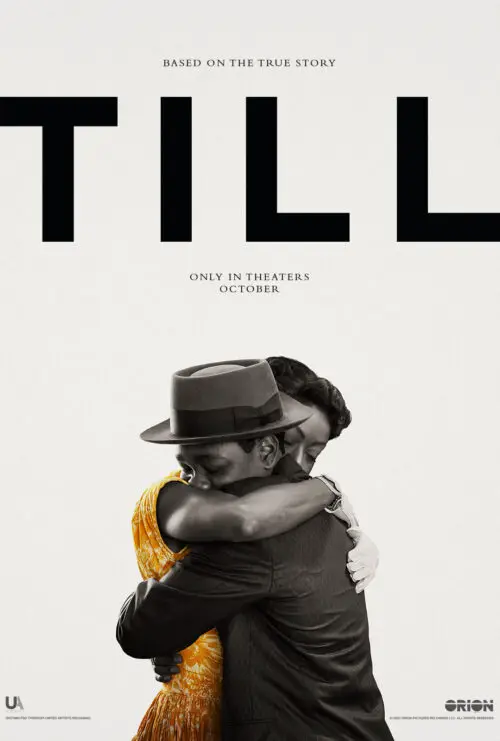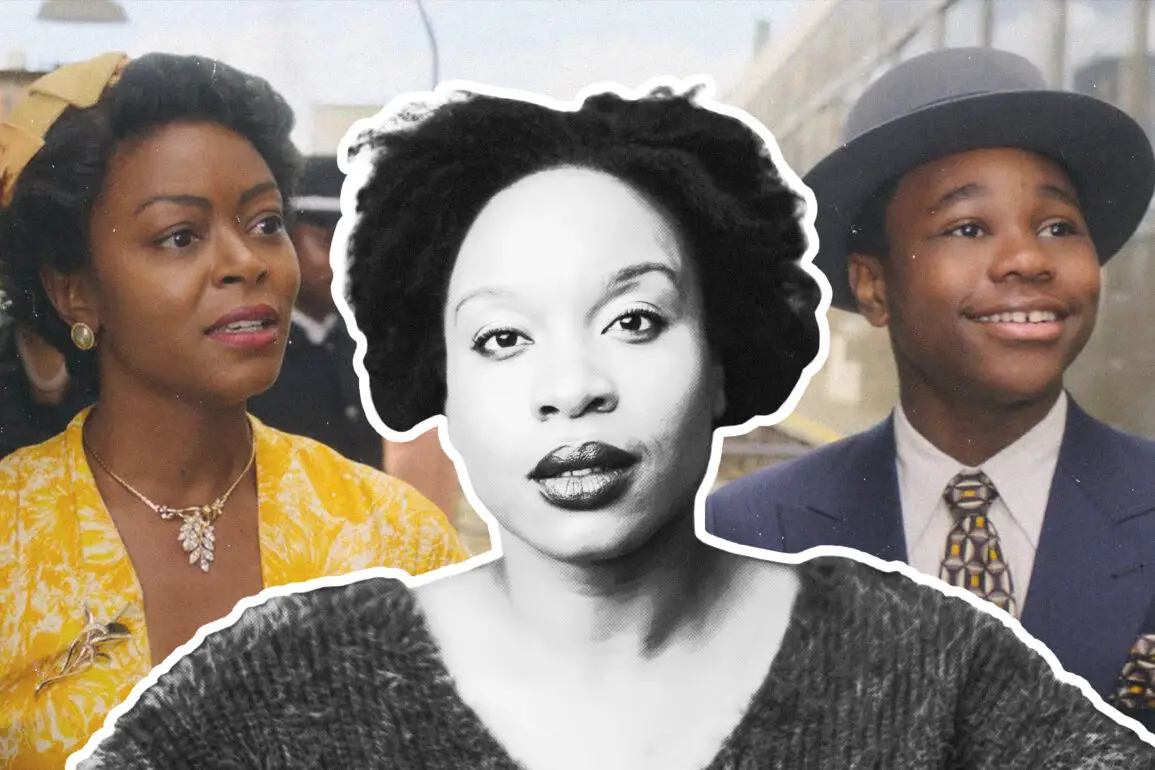
Emmett Till was murdered in Mississippi in 1955, at age 14, 67 years ago. Yet in that 67 years, there was somehow never been a feature film from a major studio about Till’s life and murder, and its aftermath. There have been numerous plays, documentaries, segments as part of larger works about the history of civil rights, and even an Oscar-nominated live-action short just four years ago.
But Till, the new film that’s in theaters now after a well-received festival run, is the first big feature film about the story. And as director Chinonye Chukwu says, it’s really the story of Emmett’s mother, Mamie Till Bradley (played by Danielle Deadwyler), and her activism after the murder of her son.
We sat down with Chinonye Chukwu last week, ahead of Till‘s showing as a centerpiece screening at this year’s Philadelphia Film Festival. The visit represented a homecoming for the director, an alum of Temple University’s School of Theater, Film and Media Arts.
Tell me, first of all, when you were at Temple, what was it like for you there, and how did that shape you?
I went to Temple in 2007 for my MFA in film, focusing on screenwriting and directing. And I spent three years at Temple, graduated, and then spent a couple of more years in Philadelphia. My time at Temple was transformative, in that it gave me a lot of education about the craft of what I do. I also started teaching while in grad school, and that was the most transformative thing I’ve done. And I ended up teaching for 11 years after that.
So how did you get from there to directing big Hollywood movies?
I mean, it’s a journey. When I decided I was going to pursue my childhood dream of being a filmmaker, I had a very one-track mind. I made at least one short film every year when I was in school, at Temple, and made a feature right after I graduated. I just needed to continue making work, and learn, grow, and expand in the craft of writing, and the craft of directing.
And I experienced a lot of rejection, and the rejection I received, particularly after my very first feature, Alaskaland, was critical because it put me on a path of learning how to detach from the ego of filmmaking, and just stay in the craft of it, and to detach from outcome. And once I detached from the ego and outcome, my work got better and that led me to making Clemency, and I was detached from the outcome of it, and it got into Sundance and won, and it changed the trajectory of my career.
In terms of the new movie, what was the story of you coming to this? Did you always want to make a film about Emmett Till? Did an opportunity come along that you took? What was the story of that?
The producer had been trying, for almost 20 years, to get this film made. They reached out to me three years ago and asked me if I would be interested in making this film. They reached out a few months after I had just finished premiering Clemency at Sundance, and I did not think I was in the emotional space to make a film in general, but especially this film. Barbara Broccoli, one of the producers, was very persistent, and she asked me to meet with the producers, and tell them how I would want to tell this story.
And I knew that, if I was going to make this film, it had to be about Mamie’s journey, through her emotional point of view, and the producers said yea, that’s what we want too, and they believed in my artistry and my artistic vision so much they [said] ‘we’ll give you creative autonomy to tell this story the way you believe it needs to be told.” And as an artist, I was very excited about that. I was also excited about the chance to center Mamie, a Black woman, in her rightful place in history.
So this was not based on any particular book or historical account, is that correct?
No, but it’s informed by decades of research that was done by one of the producers, Keith Beauchamp [director of the 2005 documentary The Untold Story of Emmett Louis Till], who was a mentee of Mamie’s before she passed.
You mentioned Barbara Broccoli. I know that family is associated with the James Bond movies. Have they done a lot of movies other than that?
Oh yea. Barbara is. I mean, a top-notch producer, period. And so has produced many films outside of the Bond franchise.
And is this the very first Hollywood studio film about Emmett Till?
This is the first movie about Emmett and Mamie Till, on the big screen.
And it took, I guess, more than 60 years?
67 years, yea.
Now, you do not show the actual murder on screen. Talk to me a little about that choice, was that always how it was going to be?
Well, because I knew that this was a story about Mamie’s journey and her point of view, it wasn’t necessary to see the physical violence inflicted upon Emmett. Not showing it was also a way for me to show care – for the audience, care for the story, and also care for myself, as a human being and as a Black person who didn’t want to see it.
Talk to me a little bit about the casting, of Mamie and also of Emmett. What was that process like? Did you want to find someone who looked like them?
I wanted craft-driven actors who were best for the role. And Danielle Deadwyler sent in an audition tape after months of us looking for our Mamie and blew me away. And when I cast actors I tend to cast actors who can communicate a story with just their eyes, who can hold and command a frame, and who can get underneath and in between the words on the page.
Danielle checked all those boxes. And Jaylin just had such natural charm, charisma, and he was also very talented. And he embodied the spirit of Emmett. And he and Danielle’s chemistry was just beautiful.
What was it like working with Whoopi Goldberg?
Oh my god, it was incredible, she’s a legend, an icon, for a reason. She’s one of the most humble people I’ve ever met in my life, absolutely no ego. She embraced me as producer, she embraced me as an actor, she was so receptive to direction, and she was so hilarious in between takes.
Getting back to [Danielle]. In the scene where she’s testifying, there’s a thing she does with her eyes, you probably know what I’m talking about. I don’t know if you’d describe it as twitching, as she gets very emotional about what she’s doing.
That’s all Danielle.
That’s all Danielle? Did she say she was going to do something with her eyes?
No, no, it just happened. She’s so present, and she really does let her spirit lead her. And she was so dialed in, so that’s all Danielle.
Do you know what your next project is going to be?
I’m circling some things.
Circling, that’s great.
I’ll leave it at that.
Being back in Philadelphia, what are you planning to do? Any old haunts you’re planning to visit?
I’m gonna eat. I’m gonna reconnect with some friends. Actually, my directing professor from back in the day emailed me and said [that] he’s going to be in the audience. So I’m going to reconnect with people and eat good food.
So is there any last thing that you want people to know about this film before they see it?
It’s a film that is for everyone and it’s a film that’s with great care. And it’s a film that’s also a love story between a mother and her child. And there is joy and love and beauty amidst the inherent sadness, that’s only part of the story. Their story is so much more.




